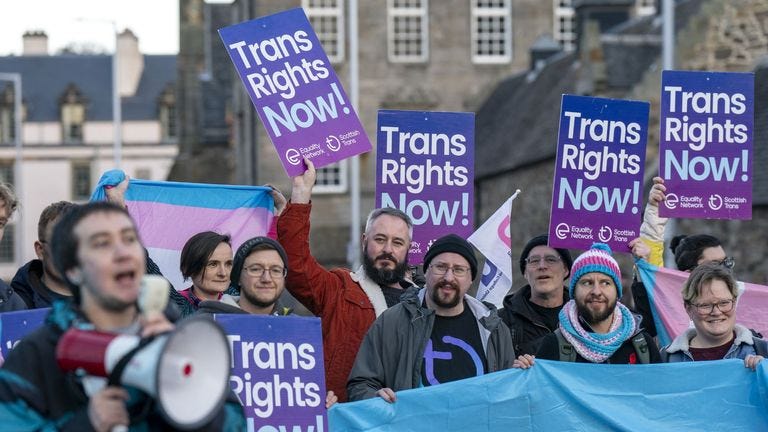It is right to block the Scottish Gender Recognition Bill
Parents are at risk of being undermined by this Bill and children are at risk from being provided with too much power. The Gender Recognition Reform Bill therefore needs a rethink, but it is unlikely
Rishi Sunak has taken the unprecedented decision to use a Section 35 order which allows Westminster to block something the Scottish Parliament has voted for to become law. This step is seen by many, as an encroachment on Scottish devolution, as an overstep by the Prime Minister. However, this was needed to block the controversial Scottish Gender Recognition Reform Bill. The Bill is controversial on two but related fronts: Too much power would be given to children and the responsibilities of parents and carers would be diminished.
The Scottish government introduced the Bill for people born in Scotland or classed as ‘ordinary residents’ as a way to make it easier for them to legally change their gender and receive a Gender Recognition Certificate (GRC). The Bill means that birth and death certificates, as well as marriage certificates will be changed to include the new gender. The Bill would also mean lowering the age to 16 to change gender, which puts it at odds with the rest of the United Kingdom who’s current age is 18. This poses a number of implications for people in the rest of the United Kingdom.
The British public would be impacted by those that choose to change their gender and decide to live permanently in England, Wales and Northern Ireland. The Bill is not restricted to Scotland only, so those that change their gender there, would expect to be recognised as their new gender in the rest of the UK. But this would be wrong, because no one other than the Scots voted for this Bill and therefore we would have to accept it as law. This is a bizarre approach taken by the Scottish government, because it is not for them to make laws that govern the United Kingdom, it is for Westminster. Had the Scottish Gender Recognition Reform Bill passed, the rest of the United Kingdom would have had a change in law through the backdoor.
A change in law through the backdoor is not the only concern with this Bill, though that is more to do with the mechanics, it is the fact that children themselves would be at risk from it. The Bill would provide children with unilateral power over themselves. The belief therefore is, that children are best placed to make legal decisions for themselves without the consent of their parents or carers. Providing children with this much power risks leaving children as the sole responsibility of themselves and ignores the very real role their parents play in their formative years.
The role of the parent or carers is to act in the best interests of the child. Parents and carers are tasked with this duty as an inherent responsibility. Not only should parents have a say in how their children are brought up, but they also have a say in how their children view themselves. This isn’t to ignore a child suffering from gender dysphoria, but rather, it is to maintain some sense of proportionately while a child is exploring and dealing with it. Making life changing decisions at the age of 16 would be irresponsible and the Scottish Gender Recognition Reform Bill would have done just that.
There has been a lot of talk of how predatory men could use gender reassignment to access female only spaces. This is of course problematic, given that for example, the majority of women in female only prisons have been subject to domestic violence at the hands of men at some point in their lives. However, while these are legitimate concerns, so too must be the concern for girls in single sex schools and other spaces.
Male children that have changed their gender at the age of 16 would be eligible to apply for a place in an all girls school in the rest of the United Kingdom. This means that female children would be exposed to male bodied children, when, for all intents and purposes, they would never have expected this. This is not to say that all male bodied children that have changed their gender are a risk, it is to point out there is an unfair expectation on girls to accept a reality that they did not choose.
While Rishi Sunak quite clearly recognises the risks of this Bill, Nicola Sturgeon doesn’t and this is quite worrying. The SNP leader is now seeking to legally challenge the Section 35 Order, but this may prove to be embarrassing. The fact is that the Scottish Parliament does not dictate the law for the rest of the United Kingdom, Westminster, with its regional representatives, does. Parents are at risk of being undermined by this Bill and children are at risk from being provided with too much power. The Gender Recognition Reform Bill therefore needs a rethink, but it is unlikely that it can deviate away from already existing legislation.

